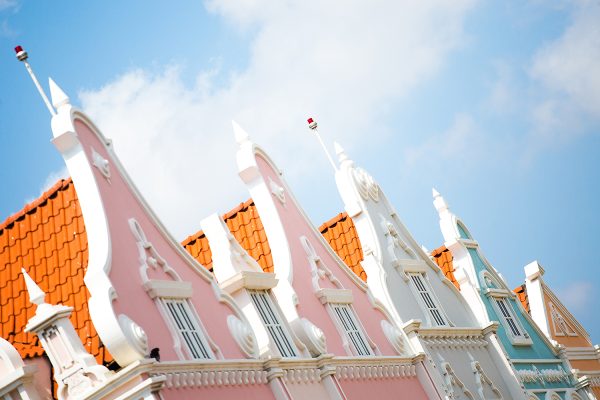
Aruba and Curaçao have agreed to liberalize their economies in order to qualify for continued financial support from the European Netherlands, without which the islands would almost certainly go bankrupt.
The coronavirus pandemic has brought tourism, on which the islands depend, close to a standstill.
Sint Maarten, the third autonomous Dutch island in the Caribbean, has yet to meet the terms of Dutch aid, which include cutting public-sector salaries by 12.5 to 25 percent.
Reforms
The Dutch demanded the same type of reforms from Aruba and Curaçao as they asked of Southern Europe in negotiations for the EU’s €750 billion coronavirus recovery fund: cutting red tape, lowering the cost of doing business, making it easier to hire and fire workers, speeding up the issuance of permits.
The islands did not oppose the proposals per se. Aruba put together its own plan calling for harmonizing employment regulations between the public and private sectors, investing in education and retraining, simplifying the tax code and shifting to e-government in order to reduce bureaucracy.
They balked at putting Dutch officials in charge of the reforms and argued that, in addition to liberalizations, the aid should come with investments.
Trust
Dutch politicians were wary of trusting their Caribbean counterparts to manage the reforms — with reason.
They gave Sint Maarten €470 million after Hurricane Irma. Three years later, not even 6 percent of the money has been spent. Sint Maarten has held five elections and gone through nine governments since it became a separate country within the Kingdom of the Netherlands in 2010.
Opposition lawmakers on Curaçao tried to use the death of a ruling party lawmaker to bring down the government in the middle of the pandemic. They failed, but not before encouraging riots.
In a compromise, one of the three officials overseeing the reforms will be appointed in consultation with the government of Curaçao and part of the aid money will go to education, housing and security.
Contraction
The islands had little choice but to acquiesce to most of the Netherlands’ conditions.
Curaçao could lose a fifth of its economic output this year. The number of coronavirus cases is rising, making a return to tourism unlikely in the short term. 50,000 of the island’s 160,000 residents are dependent on food aid. Half are unemployed. The government expects to be €500 million short at the end of the year, equivalent to nearly one-sixth of last year’s GDP. The Dutch have provided the same amount in zero-interest loans since March to plug the shortfall.
Sint Maarten, which shares an island with French Saint-Martin, was still recovering from Hurricane Irma when COVID-19 hit. Its economy is projected to shrink by a quarter.
Aruba is traditionally the better-run of the islands, but it has had the most cases of coronavirus and could see its economy contract by a third.
